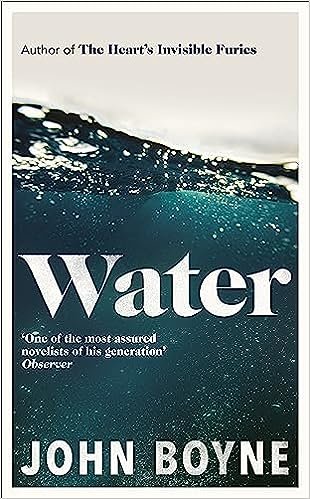Water by John Boyne: A Portrait of Struggle and Resilience
As a book blogger, I often find myself drawn to narratives that explore the complexities of the human experience. When I picked up Water by John Boyne, I was intrigued by its thematic depth and the hauntingly beautiful portrayal of a woman caught in the turmoil of her past. Set against the backdrop of picturesque Gaelic islands, Boyne weaves a tale that is as much about escape as it is about confronting one’s demons.
The protagonist, Willow, has fled her life in Dublin after an incident that remains shrouded in mystery. She seeks refuge on a small island in Galway Bay, where her life of anonymity is marked by profound introspection. From the very first pages, I was captivated by her inner turmoil: “I tell myself not to think about the morning when the Gardaí arrived at our front door in Terenure.” Boyne sets the stage for a story that is rich with tension yet slowly unfolds at a pace that allows for reflection. It’s a poignant dance between memories of loss and a desperate need for solitude.
Willow has reshaped her identity, chopping off her hair and changing her name, yet the scars of her past linger. Experiencing her world through her eyes—her thoughts wandering as she visits the village pub or converses with the local priest—was an immersive experience. The island, with its mere 400 residents, becomes a character in its own right, embodying both beauty and isolation. It’s a reminder of how constricting familiarity can be, especially when one is trying to escape the shadows of public scrutiny and a family in disarray.
One of the most striking elements of Water is Boyne’s exploration of faith and the often male-dominated narratives surrounding it. Willow’s encounter with the Stations of the Cross provokes a visceral reaction: “All these men, all these f**king men.” Her critique of the apostles’ legacy resonates deeply as she grapples with her own belief system and the oppressive weight of expectations placed upon women. This theme is not only thought-provoking but also a source of empowerment for readers who have felt marginalized by historical patriarchal structures.
Boyne’s prose is lyrical yet unflinching, making each moment feel profound without being overwrought. The early afternoon light shines through Willow’s isolation, reminding us that healing can begin even in the darkest of situations. As she meditates on water’s duality—its ability to comfort yet destroy—I found myself reflecting on my own relationship with the element. “Water has been the undoing of me,” she contemplates, and it struck a chord with me, evoking thoughts of vulnerability juxtaposed with resilience.
In a world filled with noise, Water whispers. It invites introspection and courage as Willow takes her steps toward clarity. Through this journey, Boyne crafts a multi-dimensional character whose struggles feel achingly real, and as a reader, I felt privileged to have navigated this journey with her. His understanding of the human mind, as demonstrated by Willow’s highs and lows, is exceptional.
Ultimately, I believe Water will resonate deeply with those who appreciate character-driven stories that delve into the intricacies of grief, identity, and the quest for inner peace. It’s a beautifully melancholic reflection on what we escape from and what we cannot escape within ourselves. Through Boyne’s words, I realized that while the path may be laden with sorrow, it can also be a profound journey of self-discovery, reminding us that isolation can lead to unexpected connections.
So, if you’re yearning for a story that marries quiet reflections with potent themes, I highly recommend diving into Water. It’s a read that might just linger in your thoughts long after you’ve turned the final page.







